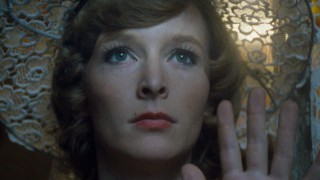

The Films of Márta Mészáros
Márta Mészáros 11 Films – DCP
The Girl
The first Hungarian film directed by a woman, Márta Mészáros’ debut feature is an assured expression of many of her recurring themes: broken families, the relationships between parents and children, and the search for stability in an uncertain world. Erzsi (Kati Kovács), a young woman living in an orphanage in Budapest, sets out to reconnect with her birth mother (Teri Horváth)—a quest that leads her to a small town where Erzsi’s modern, urban sensibilities clash with the conservative, provincial attitudes of the woman who brought her into the world but with whom she has little else in common. Laced with the feminist concerns that would become a hallmark of Mészáros’ work, The Girl is a minutely observed portrait of a woman searching for where she came from in order to figure out where she is going.
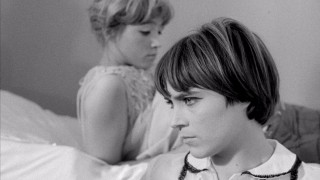
Binding Sentiments
Family ties become a trap from which a woman struggles to escape in Márta Mészáros’ quietly devastating sophomore feature. Following the sudden death of her prominent politician husband, middle-aged Edit (Mari Töröcsik) finds herself plunged into an existential crisis, caught between her desire for independence and the machinations of her elder son István (Lajos Balázsovits) who seems intent on controlling her life just as his father did. In the middle of it all is István’s young fiancée Kati (Kati Kovács), who gradually realizes that she may be repeating Edit’s mistakes. Though Binding Sentiments is rare among Mészáros’ works in its focus on a wealthy, rather than working-class, milieu, it strikingly illustrates how the predicaments of patriarchy affect all women.

Don’t Cry, Pretty Girls!
Infused with the spirit of rock ’n’ roll and rebellion, this music-driven counterculture snapshot unfolds to a near wall-to-wall soundtrack of late 1960s-early 1970s Hungarian psych and folk as it traces the odyssey of a young woman (Jaroslava Schallerová, star of the Czech New Wave classic Valerie and Her Week of Wonders) who, on the eve of her marriage to a factory worker (Márk Zala), experiences a final moment of freedom when she runs away with a touring band. One of Márta Mészáros’ most formally experimental works due to its minimal dialogue and almost proto-music video style, Don’t Cry, Pretty Girls! reflects the cultural sea change sweeping Europe at a time when traditional values were being shaken by a youthquake of individual self expression.
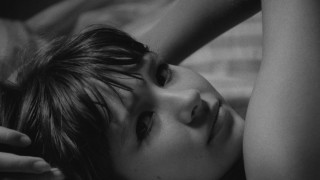
Riddance
Marta Mészáros explores class, gender, and generational conflict in Riddance, which stars Erzsébet Kútvölgyi as Jutka, a young factory worker who pretends to be a university student. The ruse retains the romantic interest of András (Gábor Nagy, who would go on to co-star with Kútvölgyi in Mészáros’s Diary for My Lovers and Diary for My Father and Mother), a handsome young man from an upper-middle-class family, but when Jutka reveals her true background their relationship becomes increasingly strained. In representing Hungarian society’s clashing attitudes and prejudices Mészáros depicts a working class woman’s attempt to overcome the perceived inferiority of her social status as well as her own familial dysfunction and feelings of inadequacy. Following Don’t Cry, Pretty Girls'’ portrait of youthful idealism, Riddance shows with somber compassion the complex societal and cultural barriers that separate the most hopeful of young lovers.
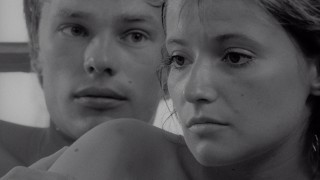
Adoption
Trailblazing auteur Márta Mészáros gives aching expression to the experiences of women in 1970s Hungary in this sensitive and absorbing slice-of-life drama, which became the first film directed by a woman to win the Golden Bear at the Berlin Film Festival. Through intensely intimate camerawork, Mészáros immerses the viewer in the worlds two women, each searching for fulfillment: Kata (Katalin Berek), a middle-aged factory worker who wishes to have a child with her married lover, and Anna (Gyöngyvér Vigh), a teenage ward of the state determined to emancipate herself in order to marry her boyfriend. The bond that forms between the two speaks quietly but powerfully to the social and political forces that shape women’s lives as each navigates the realities of love, marriage, and motherhood in her quest for self-determination.

Nine Months
A defiant woman asserts her autonomy in the face of a disapproving society in Márta Mészáros’ complex look at the ways in which women’s bodies and minds are held in check by the strictures of patriarchy. Frequent Mészáros collaborator Lili Monori delivers a fearless performance as Juli, a young woman who begins a new job at a brick factory where she is immediately pursued by possessive coworker János (Jan Nowicki)—a relationship that grows complicated when he discovers that she is raising a son from a previous lover. Mészáros’ background as a documentarian is evident in her feeling for the industrial landscapes of Northern Hungary and in the astonishing final scene in which the boundaries between actress and character are radically dissolved.
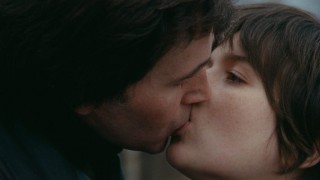
The Two of Them
Two women, each at a critical crossroads in life and love, find refuge in their friendship with one another in this multilayered look at female solidarity. Mari (Marina Vlady), a middle-aged director of a hostel for working women, grapples with her insecurities about aging and her husband’s impending departure to Mongolia; Juli (Lili Monori), an unruly young factory employee raising a daughter (Zsuzsa Czinkóczi, future star of Márta Mészáros’ Diary trilogy), struggles to escape from her tumultuous relationship with her alcoholic husband (Jan Nowicki). With characteristic sensitivity, Mészáros traces the protective yet complex bond that forms between the two, each at a different stage of life but dealing with the same questions of freedom and autonomy as they chart their rocky paths towards independence.
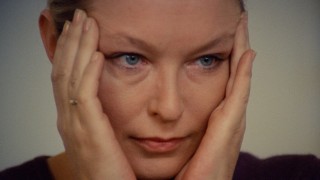
The Heiresses
The brilliance of a young Isabelle Huppert lends quiet intensity to this piercing period elegy. Budapest, 1936: Szilvia (Lili Monori), a wealthy heiress to an enormous family fortune, befriends Irén (Huppert), a young shopgirl of modest means. Unable to give birth, Szilvia offers Irén money in exchange for conceiving a child with her husband (Jan Nowicki) on her behalf—a transaction that blurs the boundaries of the two women’s social roles and leads all involved into an explosive moral, emotional, and romantic minefield. Set amidst the glimmering decadence of a pre-war Europe being consumed by the encroaching rot of Nazism, The Heiresses is a coolly harrowing dissection of class and the cost of motherhood and a haunting vision of lives on a collision course with history.
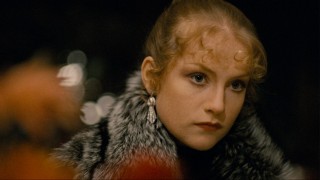
Diary for My Children
One of Hungary’s most acclaimed filmmakers, Márta Mészáros, drew on her own wartime experiences to craft this haunting portrait of a young woman coming of age amidst a turbulent historical moment. After losing her father in the Stalinist purges, strong-willed teenager Juli (Zsuzsa Czinkóczi) is brought back to Hungary to live with Magda (Anna Polony), a rigid Communist Party official who embodies the icy intellectual repression that has begun to take hold in the country. As she navigates an unfamiliar new world—one caught between the shock of World War II and the rising tide of Stalinism—Juli must fight to retain her sense of self. Winner of the Grand Prix at Cannes, Diary for My Children is a heartrending personal testimony from an artist revisiting the traumas of the past with a clear and critical eye.
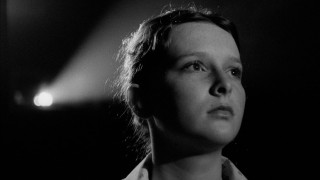
Diary for My Lovers
Márta Mészáros’ follow-up to Diary for My Children picks up the story of teenage Juli (Zsuzsa Czinkóczi), the director’s alter-ego, as she defies the wishes of her Stalinist aunt (Anna Polony) and leaves Hungary in order to pursue her dream of becoming a filmmaker in Moscow. There, Juli must navigate the bureaucratic propaganda machine that demands she conform to its ideas of “realism” while searching desperately for her missing father. Interweaving its heroine’s journey with the political upheavals of the postwar Eastern Bloc—from the death of Stalin to the short-lived promise of liberalization to the 1956 Hungarian Uprising—Diary for My Lovers is a stirring depiction of a young woman finding her voice in a world intent on stifling it.
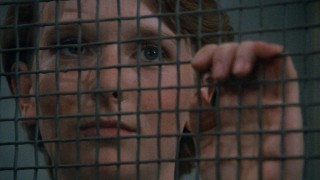
Diary for My Mother and Father
The heartrending final installment of Márta Mészáros’ autobiographical Diary trilogy continues to trace the journey of Juli (Zsuzsa Czinkóczi), a young orphan, through the tumult of postwar Hungary. Set in the wake of the failed 1956 Hungarian revolution, Diary for My Mother and Father follows Juli as she leaves film school in Moscow and returns home to Budapest where she discovers a shattered world, one where brutality, fear, and anxiety permeate every aspect of life as Soviet forces tighten their grip on power. Seamlessly interweaving documentary newsreel footage with stirring human drama, Mészáros creates an at once epic and intimate portrait of history as she experienced it, bearing witness to both the horrors of totalitarian oppression and the courage of those who resist.
